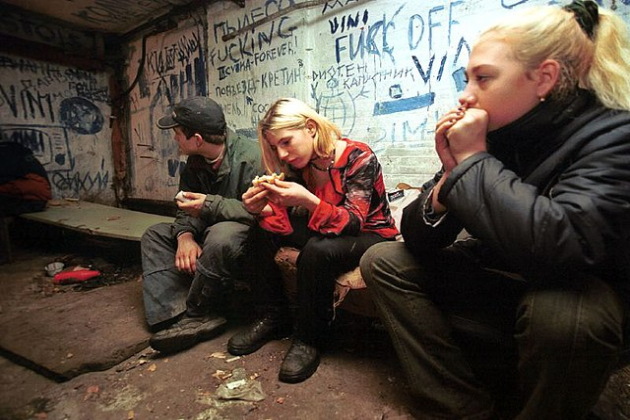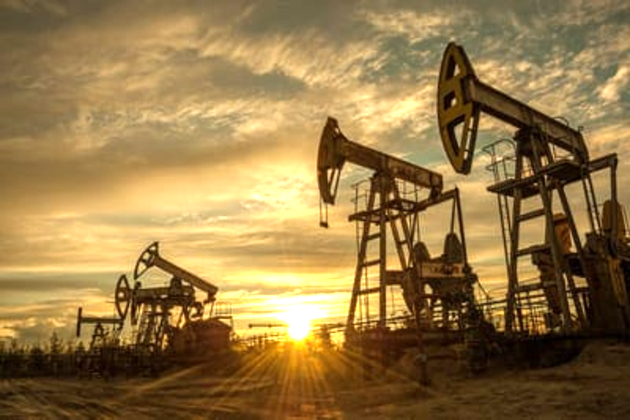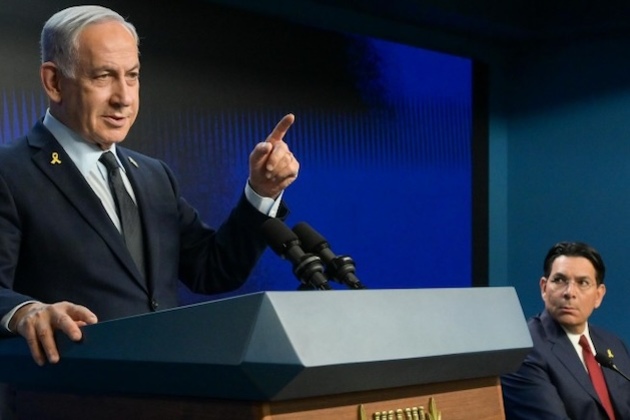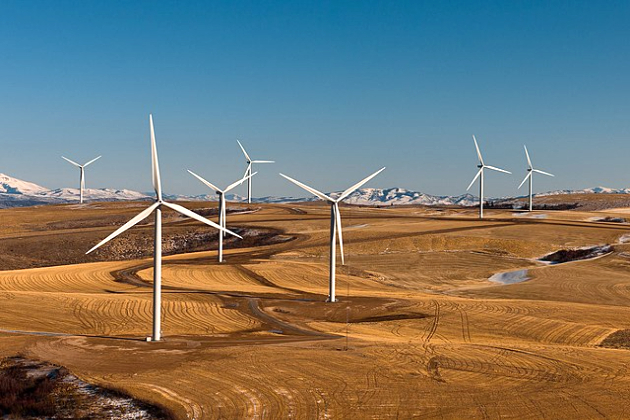OPINION: Trump's trade war could be fueling Amazon fires
News24
26 Aug 2019, 11:43 GMT+10
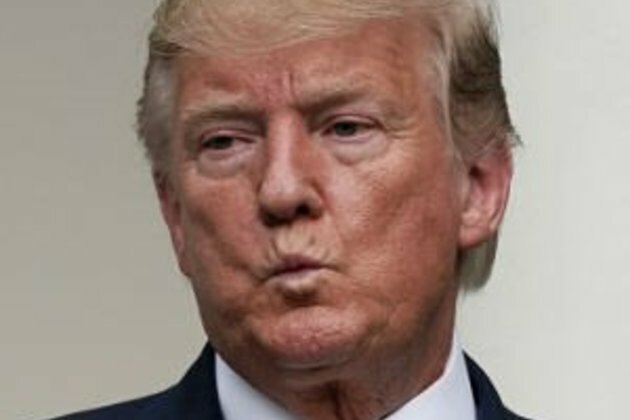
The fires currently consuming Brazil's Amazon rainforest seem a world away from the tense diplomacy in the US trade war with China. In truth, they're more closely connected than you might suspect, writes David Fickling.
One of Beijing's main acts of retaliation in the fight has been to freeze purchases of the 30 million metric tons to 40 million tons of American soybeans it imports each year. That's left it more dependent than ever on Brazilian soy to take up the slack.
Chinese imports from Brazil in the 12 months through April came to 71 million tons, about as much as it imported from the entire world in 2014.
As we've written, that's driving an investment boom into Brazil's farm sector, with major agribusiness players such as Nutrien and Mosaic shifting their focus to South America to take advantage of Beijing's desire to diversify away from dependence on US food supplies.
In a sense, this shouldn't have a direct impact on the Amazon. Most Brazilian soy is grown in the cerrado, a vast area of savannah to the south and east of the rainforest. Agricultural investment has concentrated on converting cerrado land currently used for pasturing livestock into row-crops like soybeans.
That process should be able to result in a huge expansion of arable land without touching the Amazon.
The trouble is, even Brazil has a finite amount of land and if you squeeze the balloon in one place, it risks popping out in another. As it is, most of the expansion of Brazil's arable land over the past decade appears to have come at the expense of regrowth forest, which tends to be less well-protected than primary forest like the Amazon.
This year's fires could see ranchers driven out of the cerrado by arable crops to seek new pastures in freshly-cleared former rainforest in the Amazon.
Japan, US reach broad agreement on trade deal - reports
That's particularly dispiriting because preservation campaigns appear to have started paying off in recent years, with clearing of Brazil's primary rainforest almost brought to a halt over the past decade despite the ongoing felling of regrowth woodlands.
President Jair Bolsonaro has already promised a more aggressive approach to developing the Amazon, scorning environmental concerns and jokingly referring to himself as "Captain Chainsaw."
Even when activity is kept away from the Amazon, land conversion has a damaging effect on the atmosphere. Brazil's cerrado pastureland can be quite densely forested, with livestock grazing beneath the open canopy of the trees. Converting that to row crops necessitates uprooting those carbon-sequestering trunks, one reason it's such a costly and difficult process. In addition, pastureland trampled by livestock is quite effective at locking atmospheric carbon up in the soil, but arable fields tilled every year fail to make as much difference.
It's still hard to tell exactly who is responsible for the 84% increase in fires in Brazil's forests over the past year. The intensity of the infernos is likely the result of drought, although the rising number of blazes almost certainly comes from an increase in deliberate human activity.
More than half of outbreaks have been in the Amazon, with another 30% in the cerrado and most of the rest in the coastal Atlantic forest.
Huawei sees a $10bn hit to mobile unit from US curbs
The danger of the current situation is that China's hunger for soy may derail the halting recent progress in ending deforestation. The European Union in June concluded a trade agreement with the South American Mercosur bloc after two decades of negotiation, but Bolsonaro's insouciant attitude to the Amazon represents a stumbling bloc for European governments who are needed to ratify the deal.
Brazil's agribusiness sector has even lobbied Bolsonaro's government to take greater steps to halt deforestation, out of fear that his confrontational stance could jeopardize the EU-Mercosur deal and hurt their exports.
China, on the other hand, tends to be a much more hands-off trading partner, and long-standing concerns about food security mean Beijing has been unusually solicitous of Brazil's approval. If anything could nudge Bolsonaro toward ignoring his country's land barons and following his instincts instead, it's the prospect of a rich alternative source of foreign exchange from China.
US stocks plunge as Trump vows new retaliation against China
This would be a miserable and unexpected outcome from the current trade war. Despite coming to office on a pledge to revive the coal industry and tear up environmental rules, President Donald Trump has mostly failed to reverse the greening of America's power sector and the auto industry's drive toward lower tailpipe emissions.
His trade fight with an equally carbon-addicted China, however, encouraged that country to embark on a ruinously carbon-intensive industrial stimulus last year, and may now be driving Brazil to uproot more of its forests. The grimmest climate legacy of the Trump administration may well come not from energy policy, but from trade.
 Share
Share
 Tweet
Tweet
 Share
Share
 Flip
Flip
 Email
Email
Watch latest videos
Subscribe and Follow
Get a daily dose of Irish Sun news through our daily email, its complimentary and keeps you fully up to date with world and business news as well.
News RELEASES
Publish news of your business, community or sports group, personnel appointments, major event and more by submitting a news release to Irish Sun.
More InformationInternational
SectionSan Francisco moves toward “recovery first” drug policy
SAN FRANCISCO, California: San Francisco is taking steps to change how it handles drug use. After Some people say focusing on quitting...
Trump signs order to boost skilled trades, shift from college degrees
WASHINGTON, D.C.: President Donald Trump signed an executive order to expand job training for skilled trades this week, shifting focus...
US SC judges question California’s power to set rigid emission rules
WASHINGTON, D.C.: This week, U.S. Supreme Court justices seemed open to letting fuel companies challenge California's strict vehicle...
US government fast-tracks energy, mining permits on federal lands
WASHINGTON, D.C.: The Trump administration announced this week that it will create a fast-track approval process for energy and mining...
Israeli prime minister hosts 80 international diplomats
JERUSALEM - More than 80 ambassadors and heads of mission from across the world were addressed by Israeli Prime Minister Benjamin Netanyahu...
US lawmakers subpoena Chinese telecom giants over security fears
WASHINGTON, D.C.: U.S. lawmakers are turning up the heat on China's biggest telecom firms, issuing subpoenas to compel their cooperation...
Europe
SectionRWE halts US offshore wind plans amid regulatory uncertainty
FRANKFURT, Germany: German energy giant RWE has paused its offshore wind operations in the United States, citing ongoing regulatory...
Ireland’s homelessness crisis hits record high
DUBLIN, Ireland: Ireland's homelessness crisis has hit a devastating new record, with 15,418 people living in emergency accommodation...
EU drugmakers demand higher prices to boost innovation
BRUSSELS, Belgium: European pharmaceutical companies are pushing for higher drug prices across the EU, warning that current pricing...
Toyota’s Hino and Mitsubishi Fuso near merger deal
TOKYO, Japan: Toyota's Hino Motors and Daimler Truck's Mitsubishi Fuso are edging closer to a long-awaited merger of their truck operations,...
Ireland ranks high in EU for violent assaults, EU report says
DUBLIN, Ireland: Ireland has one of the EU's highest rates of violent assault, according to new figures published by the European Commission,...
Ireland backs ban on algorithmic feeds targeting children
DUBLIN, Ireland: Social media companies could soon be required to disable addictive algorithm-driven feeds for children, under a new...

